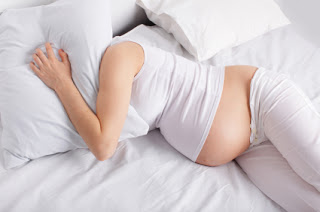
Many first time mothers-to-be are surprised when they experience bad breath or unpleasant tastes in their mouth. While there can be deeper issues at stake, many times pregnancy-induced halitosis is a common issue that upon additional care, can be resolved.
Why do Pregnant Women Experience Bad Breath?
Changes in Hormones
Pregnancy, particularly in the first trimester, is a period of rapid changes in estrogen and progesterone levels. One consequence of these fluctuations is additional plaque in teeth. This plaque contains bacteria, which leads to halitosis and possibly gum disease.
Dehydration
Women tend to be more than willing to eat for two, but when it comes to drinking, sometimes adequate levels don’t get met. When supporting a growing fetus, women should drink more water to support the systems that are hard at work in their body. A lack of hydration causes dry mouth, or xerostomia. This is a huge culprit in bad breath, and if this is the cause of your halitosis, a simple remedy is to drink more water.
Calcium Deficiencies
Similar to the need for additional water, a pregnant woman needs additional amounts of calcium to support her body and the body of the fetus. When proper calcium levels are not met, calcium from the bones or teeth will be used. The deterioration of the teeth in this way causes bad breath.
Morning Sickness
Morning sickness is experienced by more than half of pregnant women and generally occurs from the 6th-12th week of pregnancy. Morning sickness generally involves feelings of nausea and vomiting. Needless to say, this can be a huge source of bad breath. The mix of stomach acids and partially digested goods creates a smell that is unpleasant for the person as well as people they may come in contact with.
Upon vomiting from morning sickness or another cause, it is wise to brush your teeth and rinse your mouth. This will help remove bacteria and create more pleasant breath.
Lifestyle Changes
Being pregnant may also change your daily routines and natural tendencies. For one, sugary snacks or late night cravings can lead to plaque build-up. During pregnancy it is more important than ever to take care of your mouth and practice superior oral care. You should continue visiting the dentist every six months.
What are Some Remedies for Pregnancy-Induced Halitosis?
Many women would happily sacrifice a few months of bad breath for the safety of their developing baby. As it is generally wise for expecting mothers to stay away from antibiotics, many women feel helpless.
Fortunately there are a number of household remedies and home treatments for pregnant women.
- Practice Superior Oral Care – Brush at least twice a day with a Sonicare Sonic Toothbrush, floss daily and rinse mouth
- Use breath mints or BreathGemz Bad Breath Pills
- If you notice your mouth is dry, try our products for dry mouth
- Speak with your dentist or a bad breath specialist to try and remedy your halitosis
- Eat right and drink plenty of water.

About the Author: Dr. Anthony Dailley is a specialist in curing bad breath and helping patients who suffer from moderate to severe halitosis. Dr. Dailley has a degree in Cell & Molecular Biology from San Francisco State University and a dental degree from the University of the Pacific School of Dentistry. Among various halitosis treatment kits that The Center or Breath Treatment offers, in-patient visits are also welcome.

3 comments. Leave new
These factors could really contribute to bad breath and it's very important to consult it with your dentist Beverly Hills. A professional breath doctor could greatly help with this problem.
It's important to seek the help of a professional bad breath doctor. I know a good orthodontist in Lubbock tx that could help you if you guys if you have a serious case of bad breath.
I'll definitely keep this in mind, thank you very much for sharing these tips.
dentists in colorado springs co